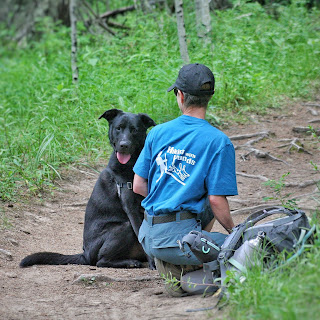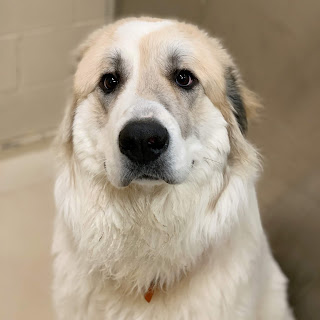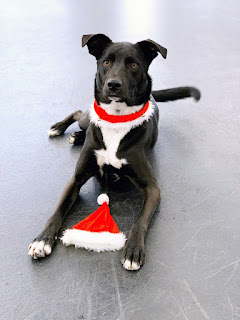The 2 a.m. Dog Walker Club
From personal experience, having a 70 pound, fluffy, unique
looking dog who is reactive to almost everything, I understand the awkwardness
when friendly people come up and want to talk about your dog, but your dog has
other plans. The lunging, barking, carrying on can be quite overwhelming even for
the owner and the look of shock and sometimes fear on others’ faces can make
you feel judged and ashamed – such a wonderful feeling, isn’t it? Well, it’s
taken me a while, and it’s something I continue to work on, but we need to stop
worrying what others think. We need to be our dog’s voice even if that means
telling people they cannot pet our dog, blocking those who do not listen, or
walking on the other side of the street to make sure you are at a distance your
dog is comfortable with. We need to watch our dog’s body language to see when he/she
is no longer comfortable and remove him/her from the situation or redirect
his/her attention to something more positive – treats are your friend here.
It can be difficult to understand why your dog is reacting. Things
we feel are normal can be extremely frustrating or scary to our canine
companions. The dog walking down the street, the child on a bike, or even a
plastic bag blowing in the wind can be a trigger to our dog. Typically leash
reactivity is caused by two factors: frustration or fear. Our dogs can be
frustrated that the thing they want to investigate is being thwarted by the
leash – think about when you are stuck in traffic and you are already running
late. The other factor, fear, is your dog feeling trapped and unable to move
away from the situation so they bark and lunge to make the scary thing move
away.
So what can we do about this? There are many different
management techniques including keeping on leash interactions short and sweet;
avoid mixing on leash and off leash dogs; changing your gear to a no pull chest/head
harness; maintaining social skills with regular off leash access to other dogs
– provided your dog is not aggressive off leash; and making an emergency u-turn
if your dog does react to increase the distance between you and the trigger.
Avoid yelling or physical corrections to punish the reactive behaviour as this
can lead to an association between the trigger and the punishment and can make
the reactivity worse.
To all my fellow 2 a.m. dog walkers, let’s start supporting
our dogs through their meltdowns and help them learn we’ve got their backs.
Stop overthinking things and be your dog’s advocate. We can do this! To those
who see us increasing our distance from you or distracting our dogs, we ask you
to please respect their space and know we are not being rude, we just want the
best outcome for our dogs.
If you need the tools to start helping your dog with his/her
leash reactivity, we have a Canine Reactivity seminar taking place November 19
at 6:30pm, Leash Lungers dog classes and private consultations. Please visit
our website www.cochranehumane.ca for more information.




Comments
Post a Comment